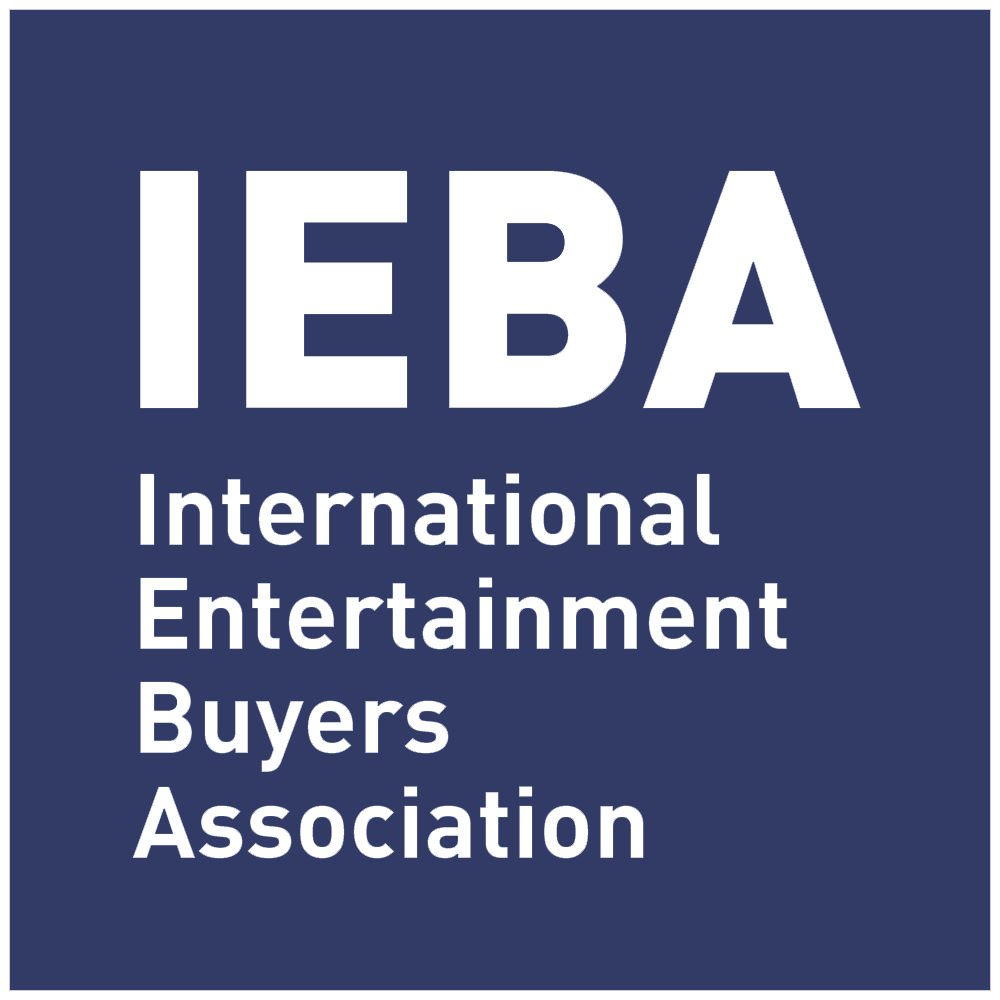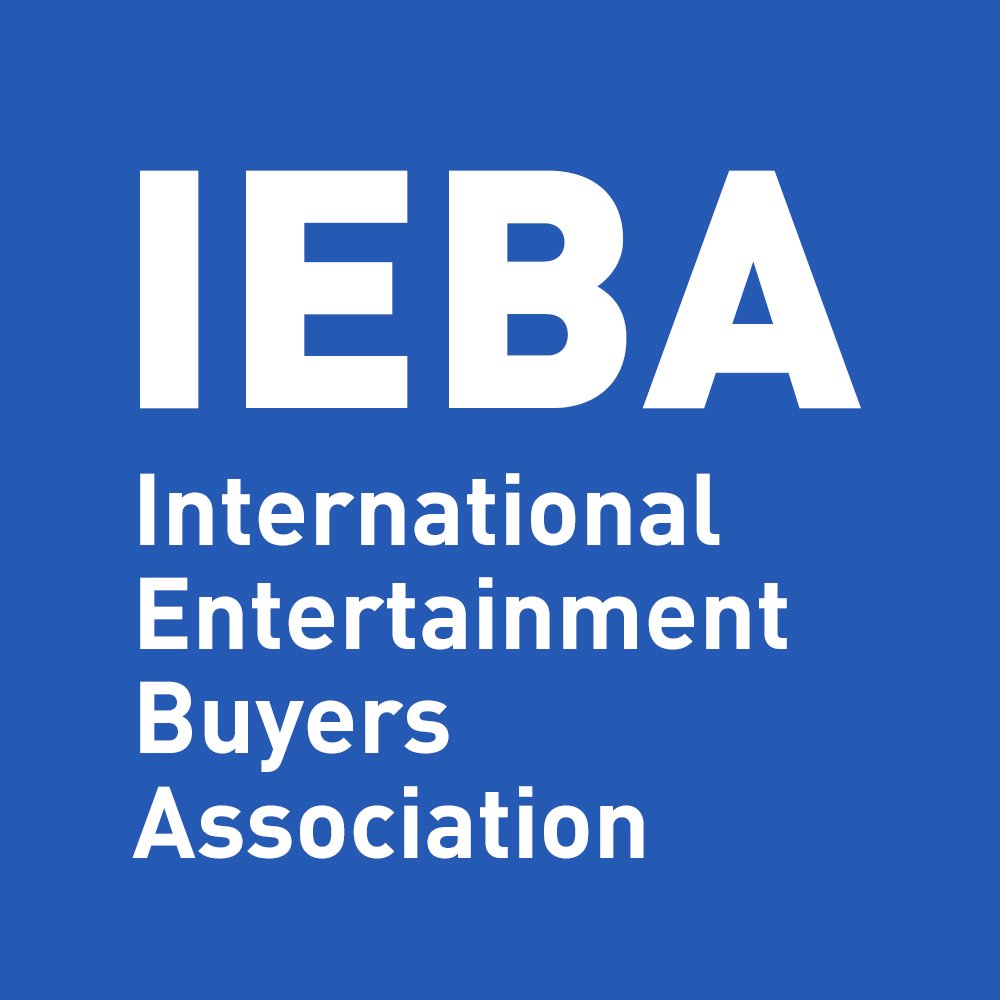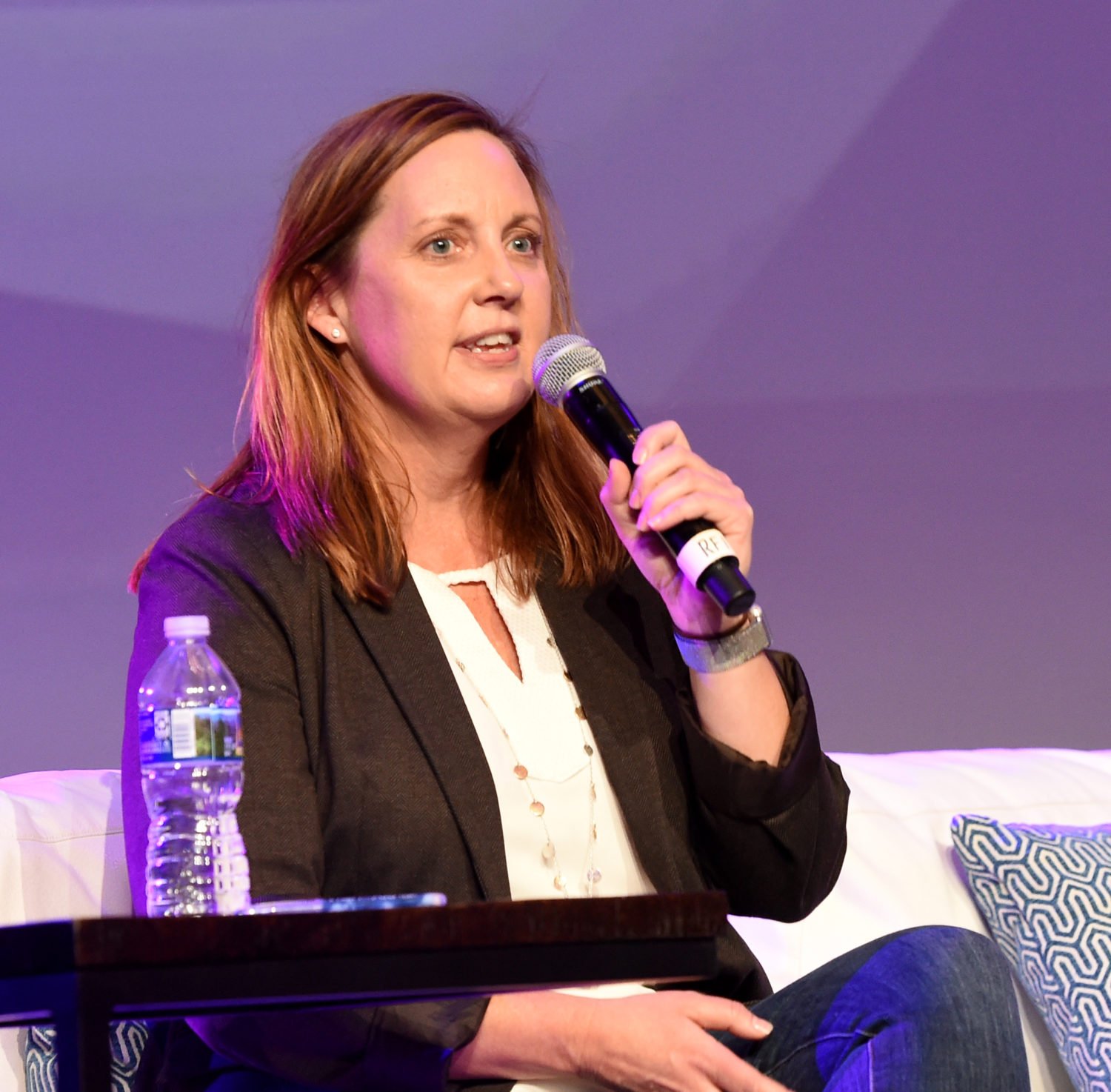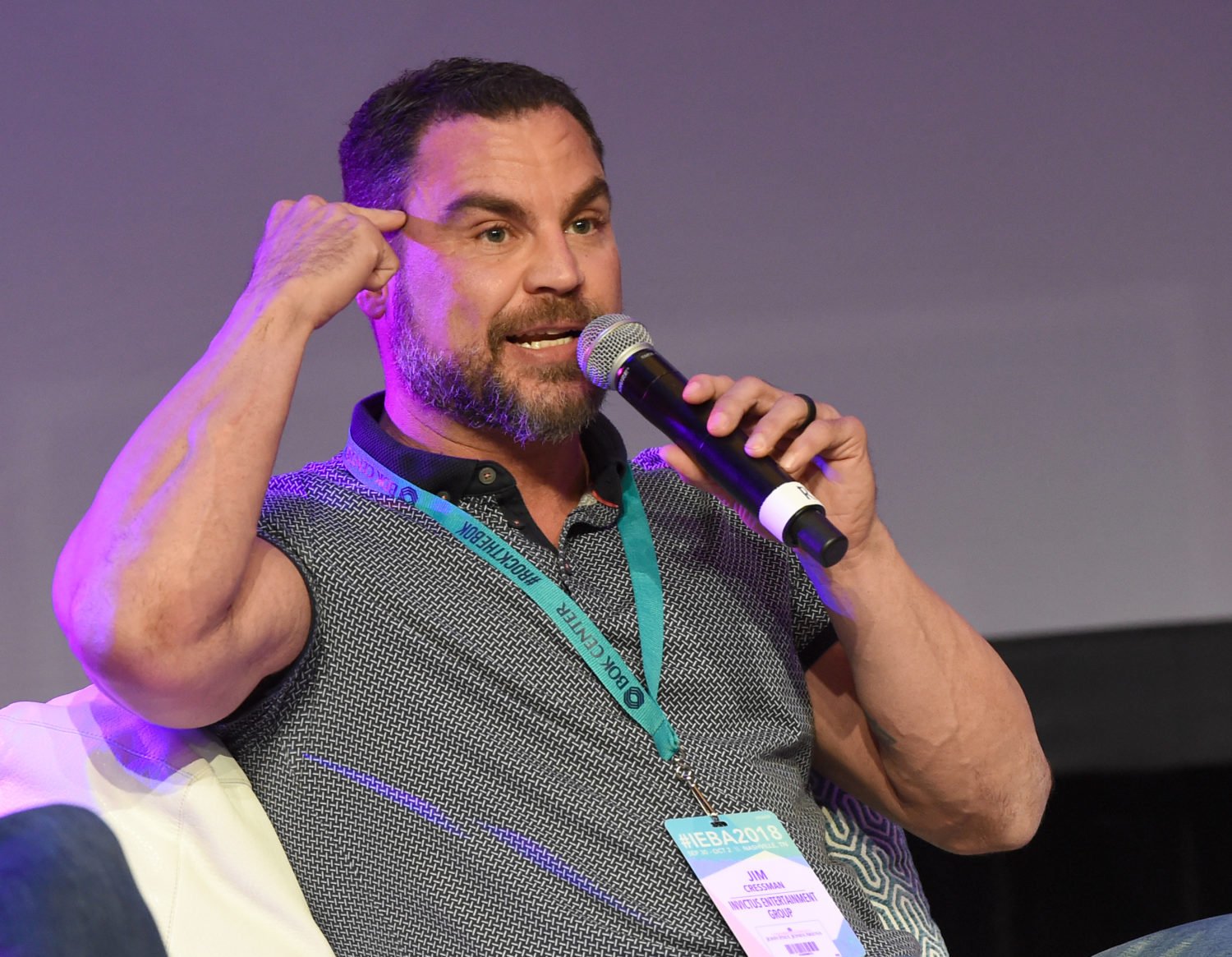Award Winners Power Panel
Panelists:
Jim Cressman, Invictus Entertainment
Lucy Lawler-Freas, Fox Theatre
Adam Kornfeld, AGI
Ed Warm, Joe’s Live
Moderated by Renee Alexander, Minnesota State Fair
Four of IEBA’s 2017 Industry Award winners kicked off IEBA 2018 by sharing their thoughts on the state of the industry and spotlighting issues to watch.
This Year’s Successes
Taking advantage of secondary and tertiary markets has been a major boon for Jim Cressman and Invictus Entertainment. Operating mainly in Canada and Alaska, in “places that are off the beaten path,” Invictus strategically books artists that have been through the major markets multiple times in smaller cities — such as a 22-day run for John Mellencamp — with runaway success.
When asked by Alexander how he is able to convince artists that these markets are worth playing, Cressman responded with a simple answer: “Money. You have to make a case for it to make sense for the artist and their team financially or they just won’t look at it.” Elaborating on how to make these shows work financially, Cressman pointed to higher ticket prices. “What we found is, if you’re in a market that is 8 hours away from a major market and you want to see Tim McGraw, you can factor in having to fly or drive or take a day off of work to go see that show in Vancouver. Or you can see it in Penticton, BC, but you’re going to have to pay a higher ticket price to see it in your backyard. Thankfully, most consumers have been bright enough to wrap their head around that. We haven’t had a lot of consumer push back on ticket price.”
Fox Theatre’s Lucy Lawler-Freas has been focusing on multiples in 2018. The building has a capacity of about 4,600, meaning that artists who typically would play an arena will instead play two or three shows at the Fox. “This has really impacted our business and has been great. Last week, Nine Inch Nails had two sold-out shows. It was kind of a high to come here on. We’ve also had a couple Anita Baker shows, multiples with Alabama, and David Byrne next week.”
On the other side of the negotiating table, AGI’s Adam Kornfeld trumpeted the success of the ongoing Def Leppard and Jouney tour. Said Kornfeld, “We are playing 11 Major League Baseball stadiums, which is just incredible to see. They have continued to get bigger every day, every year. They cross so many boundaries now. Places where we used to do 10,000 people, we’re doing 40,000 people. It’s wonderful to watch.” Kornfeld also has been pleased with the Kidz Bop tour, which has exploded nationally over the past couple of years.
Ed Warm operates Joe’s and Bub City in Chicago, produces the Windy City Smokeout, and programs country music for two festivals in Wisconsin – The Rave and Country Bloom. One of Warm’s favorite moments from the year was having Jason Aldean back to Joe’s for the first time in ten years. “The story that he and I always tell is that he never sold out the club. He leapfrogged from drawing 550 people to an arena act. He said ‘Hey, it’s been a minute since I’ve come back and really done a club show. I want to do it.’ It was special for us, and special for him.”
Can we sustain the pace?
Alexander cited record box office numbers across the globe for 2018 and asked the panel if they believed the industry would sustain this pace. Warm replied that he was ambiguous. “We hit record sales with Windy City Smokeout, but we had to do a reset and double down on the customer experience. Combining that with all of the safety requirements we’ve added in this year, I don’t know if this is sustainable. The market is very crowded in every genre.”
Kornfeld is optimistic about the coming years. “There are more markets to play, more bands, more genres, and artists are playing to a later age. I represent Rod Stewart. 73 years old and he’s as big now as he ever was and keeps going. Who would have ever thought that even ten years ago?”
Bigger shows could also be on the horizon. Predicting 10-15 shows per year at major NFL and MLB stadiums, Kornfeld pointed out that “Ten years ago, it was maybe only New Jersey that had ten stadium shows per summer and now there are a dozen cities that have that many a year. I see that continuing to grow.”
In Atlanta, the Fox is seeing their highest ever grosses this year, but Lawler-Freas urges caution: “We have to be careful of the repeat business. Bringing back people too soon, say after 12-15 months, we’ve seen a decrease of about 50% in sales on those shows.”
Cressman partially attributes rising grosses to our society’s desire for comradery and community in reaction to the ubiquity of technology and social media in our daily lives. “I think there is a real opportunity for venues, artists, agents, and managers to further monetize this with more VIP and special experiences that are available to people who are willing to attach the type of value to it to make sense.”
Industry Consolidation
Doing business as an independent promoter both for the Fox and for Rival Entertainment, Lawler-Freas argues that consolidation has meant less opportunities for her to buy talent directly, yet she finds strength and differentiation in creativity. “If you carve out a unique space and come up with events that other people aren’t thinking of because they’re worried about how much their stock price is, there is real opportunity. And there are some agents out there that will really support you. But it’s a constant battle that is not going to go away.”
Representing major acts, Kornfeld stated that he actively does business with major and independent promoters alike and has had success with both approaches. “I understand from an artist perspective that sometimes getting a piece of paper with a $100 million offer looks pretty nice and it might be tempting, especially when you know that the team behind it really will come through and you will have a successful tour. But there are major venues and cities that are not controlled by AEG or Live Nation and are very important. They’re still great in terms of playing in front of a lot of fans, making a lot of money, and building careers.”
Warm agreed that there is room for both independent and major promoters and offered the following advice: “You’ve just got to find your niche and stay in your lane. And when someone like Adam lets you have an opportunity, you’ve got to deliver. Work hard on behalf of the artist and on behalf of the venue, and sell a lot of tickets while delivering a quality experience for the artist.” Alexander requested that Warm share what he has found to be his niche. Warm responded, “Getting invested early on with artists. It’s taking a leap of faith. You’re doing shows that you know in your gut probably aren’t going to do very well, but you know that some people are going to pop through.”
Cressman echoed Warm’s sentiments. “You have to sell certainty. You have to deliver. People will know that the bills are going to get paid and shows will be marketed properly because it’s literally your money as an independent that is on the line. But you can’t take away from the level of success that AEG and Live Nation have. And frankly, if you’re not learning from it, well, you should be.”
Ticket Fraud and Bots
On the topic of surprises and challenges in the past year, much of the conversation revolved around ticketing. Warm shared that fraud on the secondary market had been an issue at shows. “With how much and how many charge backs happened across the board with shows, it was very surprising and tough to fight.” Alexander concurred. “In a fair setting, you may not have people that are necessarily standard ticket buyers and it’s hard to get that message across to folks when that happens.”
Kornfeld added by sharing his experience with bots clogging up onsales. “You could go on sale and people think you are sold out and you’re really not. Sometimes it takes longer to sell tickets just because the lines are getting clogged up. Waiting rooms with Ticketmaster helped a little bit, but not much.” To combat this situation, Lawler-Freas tried an onsite presale at the venue and had mixed results. “You would think people would be pleased to have that opportunity, but in this day and age when everything is at your fingertips, standing in line was an inconvenience.”
Security
Alexander revisited an earlier comment made by Warm and asked him what changes he’s implemented at his venues and events to improve safety and security this year. Warm responded, “We are always patting down and wanding. People have come to expect it no matter what kind of show it is. We have gotten really careful about meet ‘n greets. We monitor online chatter.”
Warm continued, “I’ve got an urban festival in downtown Chicago and I’m surrounded by high rises. We brought in security experts so that we knew how to get people out if we needed to. The other thing we’ve learned is communication with local authorities. It’s finding who your sergeants are in your police area and finding who your local FBI and Homeland Security people are.”
“I had a stadium show and a festival this year and I had snipers at both,” offered Lawler-Freas. “There were helicopters circling above. There doesn’t seem to be push back on your security bill anymore. We have to be safe, there is no question.”
Sharing his perspective, Cressman pointed out that even with different gun laws and a lower rate of gun violence in Canada, he has seen changes. “We take a more serious approach on screening people as they come through the doors. Metal detectors, wanding is more common than it was even five years ago, and the backstage area is super tight.”
Fan Experience
When asked about forecasting industry trends for the next year, the panel unanimously agreed that fan experience will be the number one priority. “People will pay for whatever they perceive as a privilege,” noted Kornfeld. “Put everyone in the front row so they feel they have the best seat in the house. We have too many price levels. People start to drop off and think they are lousy seats. So charge one price.”
Lawler-Freas offered, “Everyone wants the marquee club experience. I don’t think that we are going to see push back on ticket prices for a long time. I think people are willing to pay for the good seats.”
“If content is king, then convenience is queen,” quipped Cressman. “People want convenience. My kids don’t even understand the concept of having to sit down Sunday at 6pm to catch Disney because everything is on demand. If we can make the experience more convenient for them, we will continue to have their attention and will be able to continue to monetize this business more effectively.”







